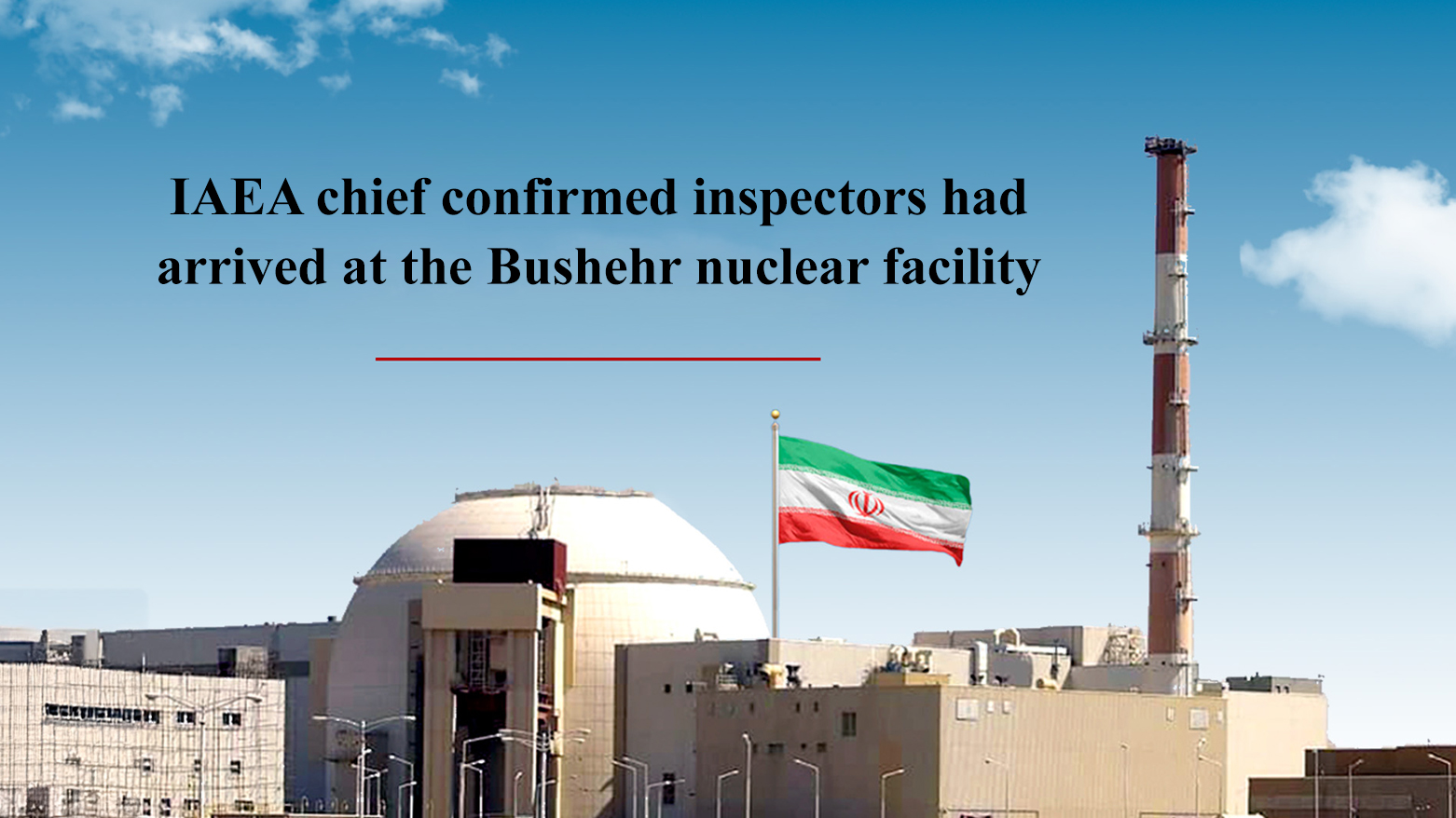After Blocking U.N. Nuclear Watchdog, Iran Allows UN Nuclear Inspectors to Return
IAEA inspectors return to Iran's Bushehr nuclear facility after Tehran suspended cooperation last month. Director Grossi warns inspections cannot be "à la carte" and must include all sites. The move comes as Europe threatens to snapback UN sanctions.

ERBIL (Kurdistan 24) – The United Nations’ nuclear watchdog has sent its first inspection team back to Iran since Tehran suspended cooperation last month, marking what could be a tentative step toward restoring international oversight of the country’s nuclear program.
International Atomic Energy Agency (IAEA) Director General Rafael Grossi confirmed Wednesday that inspectors had arrived at the Bushehr nuclear facility in southwestern Iran, a site spared from Israeli airstrikes during the June war.
“They are there now. Today they are inspecting Bushehr,” Grossi told reporters during a visit to Washington.
Iran’s Atomic Energy Organization said IAEA officials would oversee the replacement of fuel at Bushehr, but did not confirm whether access would be extended to other key sites, including Fordo and Natanz, which were targeted in Israeli and U.S. strikes.
Grossi stressed that discussions with Tehran over wider access remain ongoing, emphasizing that inspections cannot be restricted.
“There is no such thing as a la carte inspection work,” he said, warning that Iran must allow monitoring across all nuclear sites, including those damaged in recent attacks.
The development comes after a period of heightened confrontation. In June, Israel launched a 12-day war against Iran, later joined by U.S. forces, striking multiple nuclear facilities. Both governments argued the campaign was necessary to prevent Tehran from advancing toward nuclear weapons capability.
Iran suspended cooperation with the IAEA shortly after the conflict, deepening mistrust that was already inflamed by the agency’s June assessment accusing Tehran of failing to comply with nuclear nonproliferation obligations.
Iranian officials accused the watchdog of providing Israel with “political cover” to justify its military campaign, as the IAEA released its findings just one day before Israeli airstrikes began on June 13.
European signatories to the 2015 Joint Comprehensive Plan of Action (JCPOA) have threatened to trigger the deal’s “snapback mechanism” by the end of August, a move that would reimpose U.N. sanctions lifted under the accord.
Granting inspectors re-entry was one of three key demands made by European governments to prevent the snapback provision, which Tehran has denounced as illegitimate. Iran argues that Washington forfeited its right to invoke the mechanism when former President Donald Trump withdrew the U.S. from the deal in 2018 and imposed unilateral sanctions.
Grossi, who also met with senior U.S. officials in Washington, said the IAEA continues to press Iran for wider cooperation. Meanwhile, Iranian officials warned of “grave consequences” if sanctions are restored, though they have not explicitly threatened to expel inspectors again.
While the IAEA has found no evidence that Iran is actively building a nuclear weapon, the agency has confirmed Tehran is stockpiling about 882 pounds of highly enriched uranium, beyond levels needed for civilian energy production.
Iran insists its nuclear program remains for peaceful purposes, yet Western governments fear that, following the damage inflicted on its infrastructure during the June war, Tehran could seek to shift sensitive activities underground to evade detection.
The resumption of inspections at Bushehr offers a limited but symbolic concession by Iran, as both sides weigh diplomacy against the threat of escalating sanctions.
In the months preceding the war, Iran and the United States held five rounds of indirect talks aimed at reviving a framework for nuclear limits, but those efforts collapsed amid spiraling regional conflict.
With an October deadline looming, the fragile re-engagement between Tehran and the IAEA may determine whether diplomacy survives—or whether sanctions and confrontation return to dominate the nuclear file.